According to MIT, more than 173,000 terawatts of electricity reach the earth from the sun. One of the main advantages of solar energy is that it is the most abundant and renewable energy source on the planet. It is 100% renewable and will last for billions of years. You can harness this energy using different types of solar panels.
In addition, most industrial facilities prefer monocrystalline solar panels. This is because they have an efficiency rating of 20%. Below we will discuss solar energy and the advantages of installing solar energy in your home or industrial facility.
What is Solar Energy?
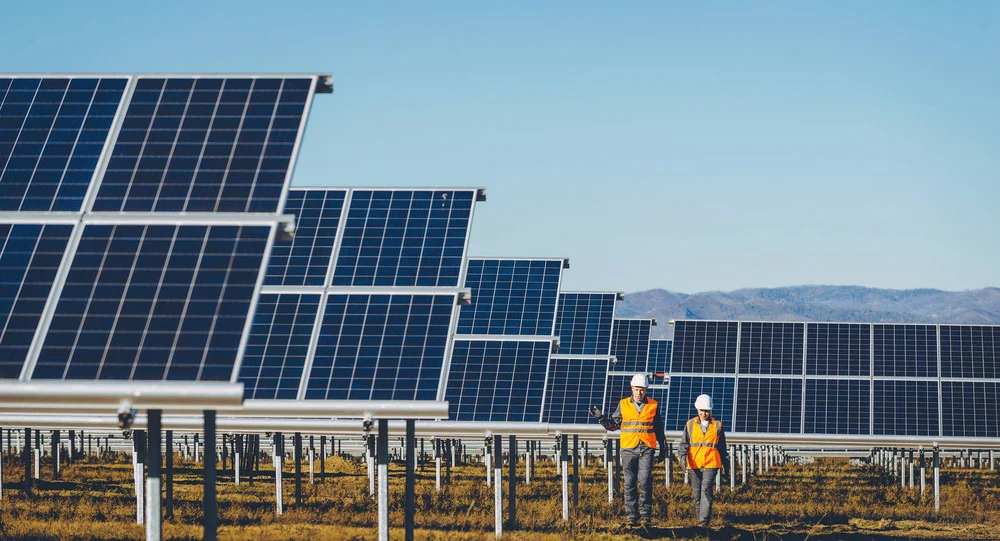
Solar power station
Solar energy comprises heat and radiant light. To convert radiant light and heat to energy, use a technology known as solar power. Solar power converts the sun’s energy into electricity. Solar energy is renewable and clean for the environment when compared to fossil fuels.
The Solar Energy VS Other Types of Energy
Solar energy is not the only type. There are other types of energy, such as thermal, electrical, mechanical, and conventional.
Thermal Energy
Thermal energy is also known as heat energy. To produce this energy, molecules, and atoms must collide with each other. Then, they produce thermal energy. Examples include hot chocolate and heat from a heater.
Electrical Energy
Unlike thermal energy, which uses molecules and atoms to generate heat, electrical energy uses electrons. In other words, electric energy is a form of kinetic energy.
Mechanical Energy
Every moving object has mechanical energy. A good example of this is a moving car. Other examples of mechanical energy include riding a bicycle or breathing in and out.
Conventional Energy
Fossils produce conventional energy. In addition, conventional energy sources are non-renewable. These sources include fossil fuels such as coal, oil, and gas. Unlike solar power, non-renewable sources increase the carbon footprint.
How Does Solar Energy Work?
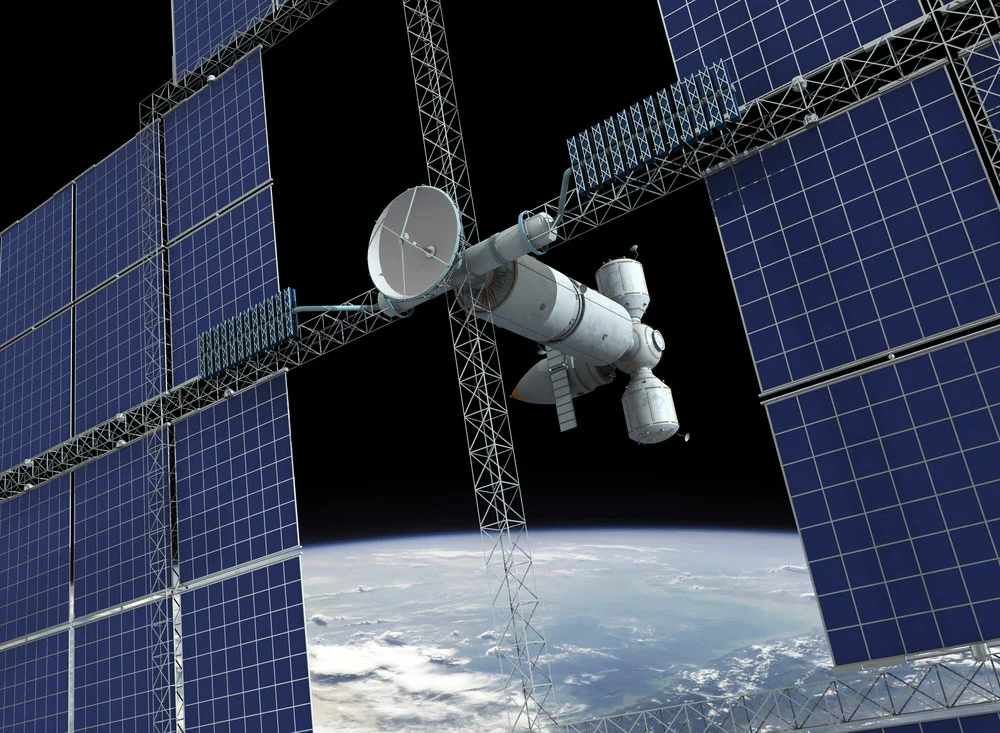
Solar Panels
Solar energy systems harness light and convert it into electricity or heat. Therefore, industrial facilities that use solar systems benefit from cheap and reliable solar power.
How is Solar Energy Produced?
Two main solar power systems produce solar energy. The first is the photovoltaic systems/cells, and the second is the use of thermal energy collectors.
- Photovoltaic cells: This system utilizes photovoltaic panels that absorb light and converts it into electricity. The photovoltaic panels do this by absorbing electrons and photons. The panels will generate an electric current when it absorbs light.
- Thermal energy collectors: Unlike photovoltaic panels, thermal energy collectors work by absorbing sunlight. The solar cell will absorb the sun’s heat and transfer it into a liquid. Therefore, you can use these solar power systems to heat water.
Uses of Solar Energy
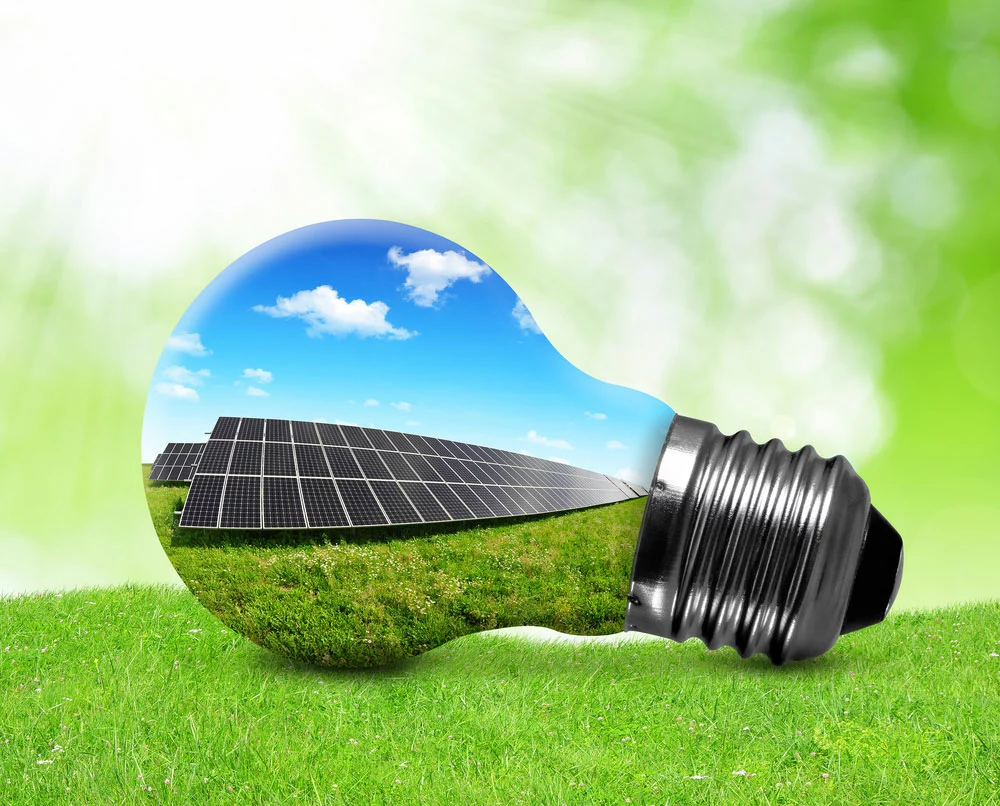
Green energy concept
A utility company will use solar panels to produce clean energy. You can sell it to domestic and industrial facilities using the power grid when you produce excess electricity.
Satellites use solar energy to move and power their equipment. The energy capacity of the spacecraft will depend on the number of installed solar panels.
Industrial facilities use solar energy to reduce greenhouse effects. You can also use it at the domestic level to increase the price of your property.
In addition, you can use Solar heat to heat water in real-time.
Advantages of Solar Energy
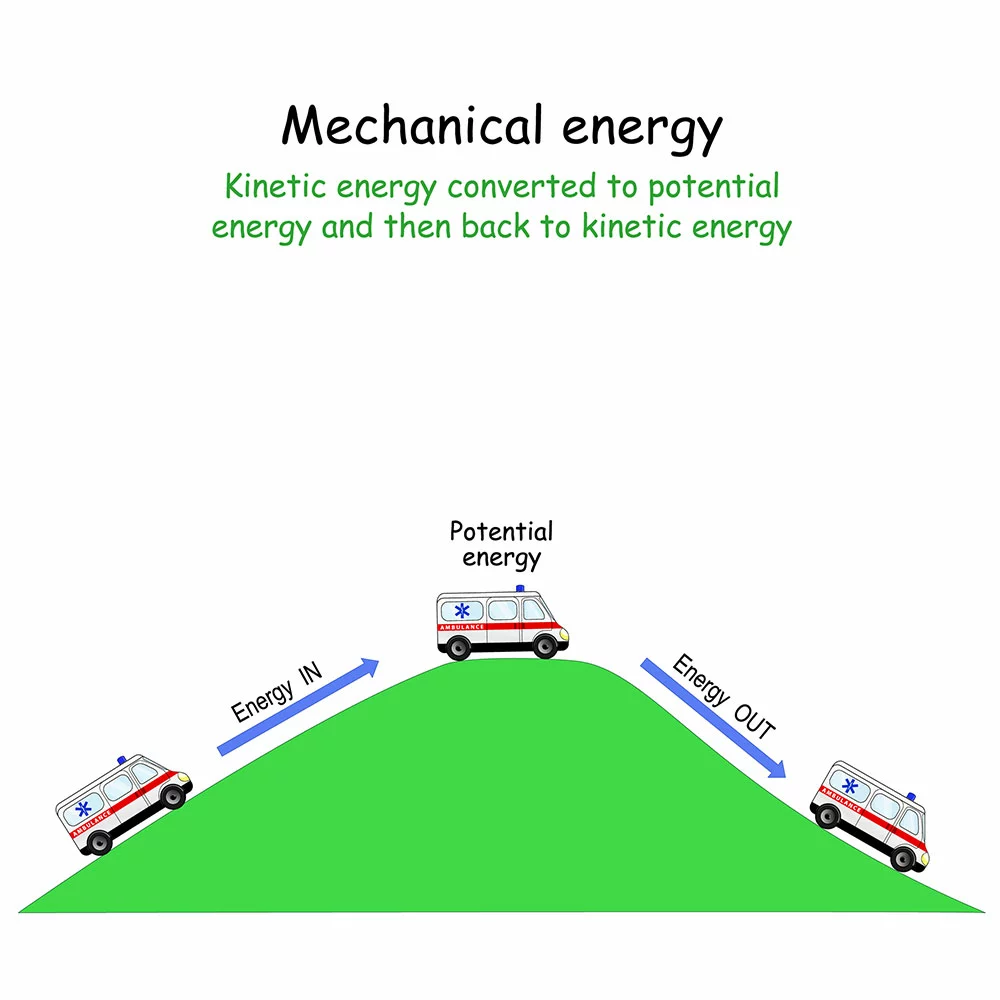
Mechanical energy
Solar technology has several advantages compared to alternative energy sources such as oil. Some of the solar energy pros are:
1. It is an Infinite Source of Energy
The sun is a powerful energy source that will produce light for billions of years. It is a source of energy that is infinite. In simple terms, it will never run out.
2. Solar Energy Lowers Your Electric Bills
Solar panels enable you to harness the sun’s power free of charge. This is because no one will bill you for using sunlight. In addition, large producers can sell excess energy to the grid, increasing their income.
3. Solar Panels Increase Your Property Value
Property buyers will want to buy your property because they know the importance of solar electricity. Solar has low electricity rates. In other words, the bills will remain low even if you increase your electricity usage.
4. Its Environmentally Friendly
Solar technology has environmental benefits because it does not emit greenhouse gases or pollute the environment. This is because it uses solar radiation to produce energy.
5. Low Maintenance Cost
These days, companies produce high-quality solar panels that last more than 25 years. These modern panels have warranties and little additional costs in terms of maintenance.
6. Provides Green Jobs
The solar industry creates economic opportunities for many target groups, such as researchers, installers, and suppliers. Various industry segments use solar panels to create a greener and more sustainable world. These segments include real estate, manufacturing, and accommodation.
Disadvantages of Solar Energy
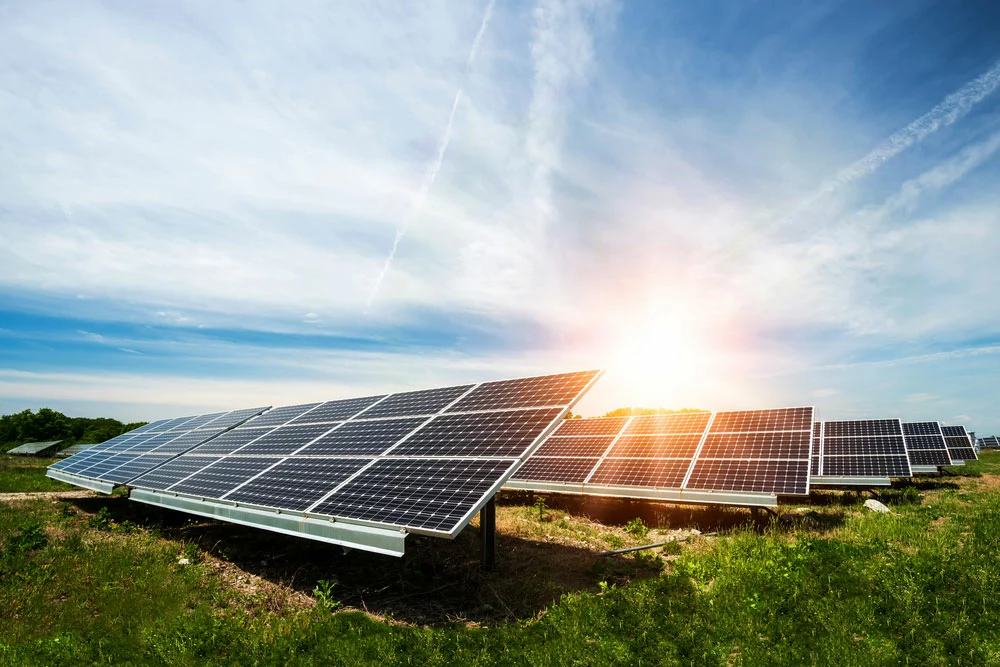
Solar panel
Though the solar industry has helped revolutionize energy production, it has two main disadvantages.
1. Dependence on Weather
Unlike natural gas plants that produce electricity throughout the year, solar energy will only produce electricity if there is sunlight. In other words, a cloudy day can reduce efficiency by up to 80%.
2. Inability to Store Electricity
Another main problem with solar energy is that you need batteries to store excess power. In addition, the batteries will generate electricity during the night.
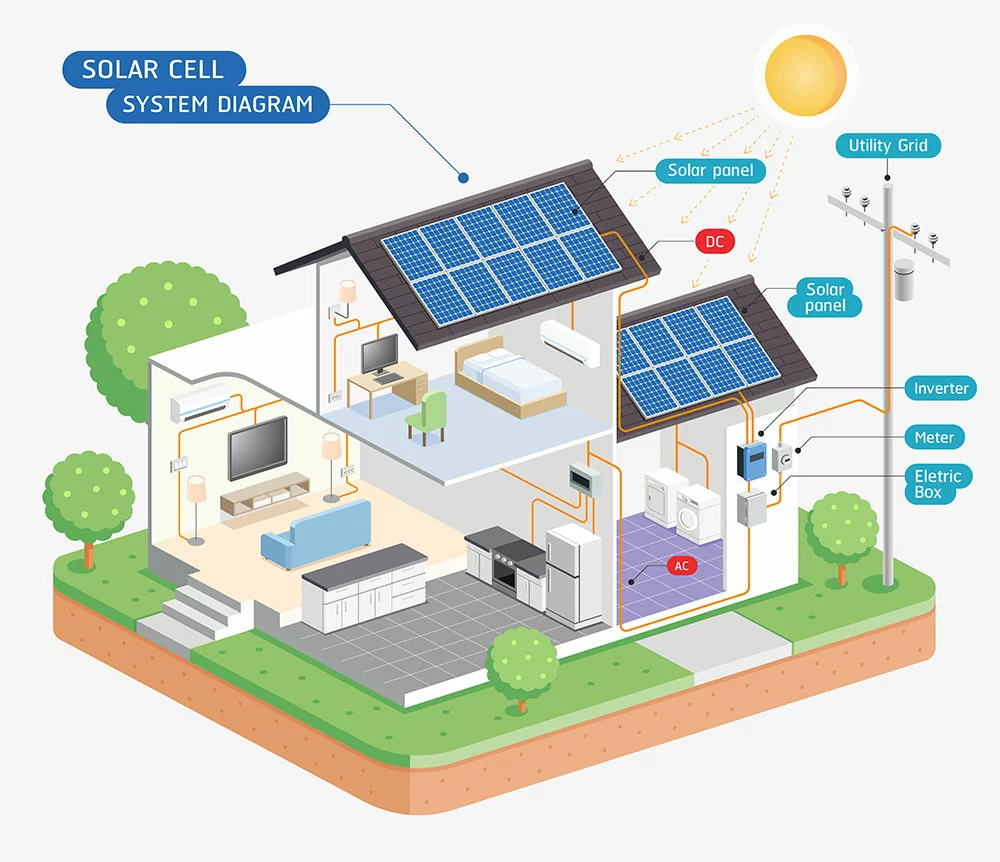
Solar cell system diagram
Other solar energy drawbacks are:
High Installation Costs
Though there is a long-term financial benefit to installing solar panels, they are not cheap to install. The average cost of installing a solar system is around $ $15,000 – $40,000 for a 2,000 sq ft house. The average price will depend on the type of panel installed, capacity, and roof design.
Harmful to Dispose
Solar panels contain toxic materials such as lead which leach the ground. Solar panels contain toxic materials such as lead which leach the ground. To reduce environmental pollution, manufacturers should have a recycling policy.
Not Suitable for Night Use
Photovoltaic energy is only available during the day. Therefore, you should have batteries to store excess electricity for future use.
Summary
In conclusion, though there are negatives about solar energy, the benefits of using renewable energy technologies outweigh the negatives. Solar panels enable you to become energy independent and benefit from energy credits. In this regard, solar energy is the better way to save the planet from greenhouse emissions. Therefore, have a solar panel installed to save the planet.
